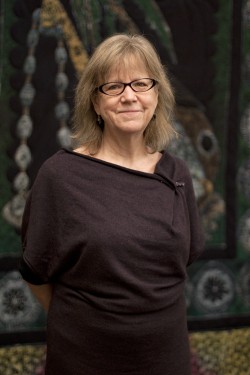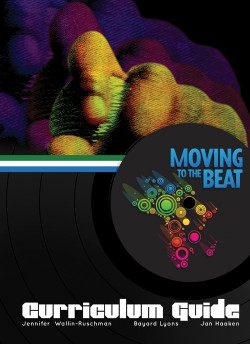Whatever happened to The Sugarhill Gang?
After 10 years in the making, Portland State’s newest curriculum, “Moving to the Beat,” will be revealed at a special conference Saturday, Feb. 18. The event, to be held in the university’s Multicultural Center, will also include the 2008 Moving to the Beat documentary, music and set curriculum guide, all of which are intended to act as a medium for cross-cultural dialogue and social change.

“‘Moving to the Beat’ highlights the interconnectedness that music brings in relating Africa and the U.S. using hip-hop and modern means to relate to the students,” said Karli Rizzo, a PR and marketing rep for the event. “I expect the public will warmly receive the multimedia curriculum as it presents world history in a unique and engaging way.”
The hip-hop curriculum will emphasize the social aspects connected to hip-hop and culture, and will also include essays and activities for classroom use.
“Education today needs to be relatable,” Rizzo said. “Given the hundreds of advertisements and technological advances kids are exposed to today, the ‘Moving to the Beat’ curriculum meets kids where they are already engaged.”
In addition to workshops and performances, the one-day symposium will include Q-and-A sessions with documentary filmmaker Abdul Fofanah and a panel of esteemed speakers. The panel, named “Hip-Hop and Critical Consciousness,” includes Portland hip-hop music producer Donald Dent, spoken-word poet Ro Deezy, filmmaker and PSU Professor Emeritus of psychology Jan Haaken and PSU doctoral student Jennifer Rushcman-Wallin.
“Within the commercialized, frequently misogynistic and eradicated-of-culture music called hip-hop, there remains true art and authentic voices,” said Rochell D. “Ro Deezy” Hart, spoken-word artist and panelist.

A noted activist, Hart is the author of six published books and has participated in poetry slams since 1998. She has released several CDs and opened for such groups as The Roots.
“Unfortunately, those voices—i.e., Dead Prez, Gabriel Tedros—are recurrently drowned out by the nonsense of Nikki Minaj and Drake,” Hart continued. “Events, movements, documentaries and curriculums such as ‘Moving to the Beat’ are absolutely necessary as a tool for balance in a movement of music that has and continues to shape our society.”
Despite her affinity for hip-hop music, Hart sees a noticeable, worrisome change in the genre over recent years.
“When nearly every artist that dominates the charts can be summarized in five words—sex, money, drugs, bling and partying—there is a decisive problem,” Hart said. “Growing up, I listened to N.W.A. and Public Enemy. We had Lil Kim and Sista Soulja. There was a balance.”
The conference also marks the premier of the hip-hop documentary of the same name, co-directed by Caleb Heymann and Abdul Fofanah. The film centers on a hip-hop group from Portland called Rebel Soulz, who as an assembly carries out a conversation with youth in war-torn Sierra Leone through the medium of hip-hop.
“The documentary enlists the narrative device of the journey, in this case, the journey of Rebel Soulz members as they travel to Freetown, Sierra Leone, to bring the radical roots of hip-hop to the ‘motherland,’” said Jan Haaken, PSU professor and fellow filmmaker.
Haaken herself has directed two documentaries and is the producer of Heymann and Fofanah’s Moving to the Beat.
“As documentary filmmakers, we wanted to capture the currents of this cultural movement and to document the lyrical aspects of hip-hop dialogue, itself an echo of the older black tradition of call-and-response,” Haaken said. “As the completed documentary circulated in schools and festivals in the United States and Britain, as well as countries in Africa, demands followed for a curriculum guide to continue this dialogue in secondary level and college classrooms.”
For Ryan Abbott, a PR rep for the conference, those messages are absolutely critical.
“Hip-hop is more than just music. In places like Sierra Leone, Africa, it is a voice for the voiceless. It can be music for the sake of music, or it can be that ferocious thing that jumps out of the darkness and commands its listeners to move to the beat of the message, instead of the song,” Abbot said “The next generation needs to hear this and understand it if we ever hope to wipe out oppression.”
Near the end of the event, keynote speaker Dr. Wayne Au will give his thoughts before the second film screening of the day. Dr. Au, a nationally renowned educator and curriculum scholar, will give a talk titled “Why Hip-hop? Dilemmas in Bridging Youth Culture and the Classroom.”
“I feel that this is an important project that deserves support and distribution. Amidst what I see as a plague of high-stakes testing and undemocratic school reforms, schools are becoming increasingly alienating spaces for working class youth of all races, as well as specifically for African American and Latino youth,” Au said. “Projects like ‘Moving to the Beat’ live as examples of how our school curriculum can and should be constructed to engage students in ways that honor their lives and cultures.”
Despite his confidence in the project and its intentions, Au is unsure of how the public will respond to the presentations and the curriculum.
“The ‘public’ is a very mixed group, and I’m sure that this project, like any other educational endeavor, will have its share of detractors and supporters,” Au said. “People’s responses will likely depend on what they see as the role of public education in this country.”
“Moving to the Beat” is sponsored by the Portland State ASPSU Speakers Board, Psi Chi Honor Society, Department of Psychology, Graduate School of Education Curriculum and Instruction. For complete event schedule, visit www.moving2thebeat.com/poster.png.

